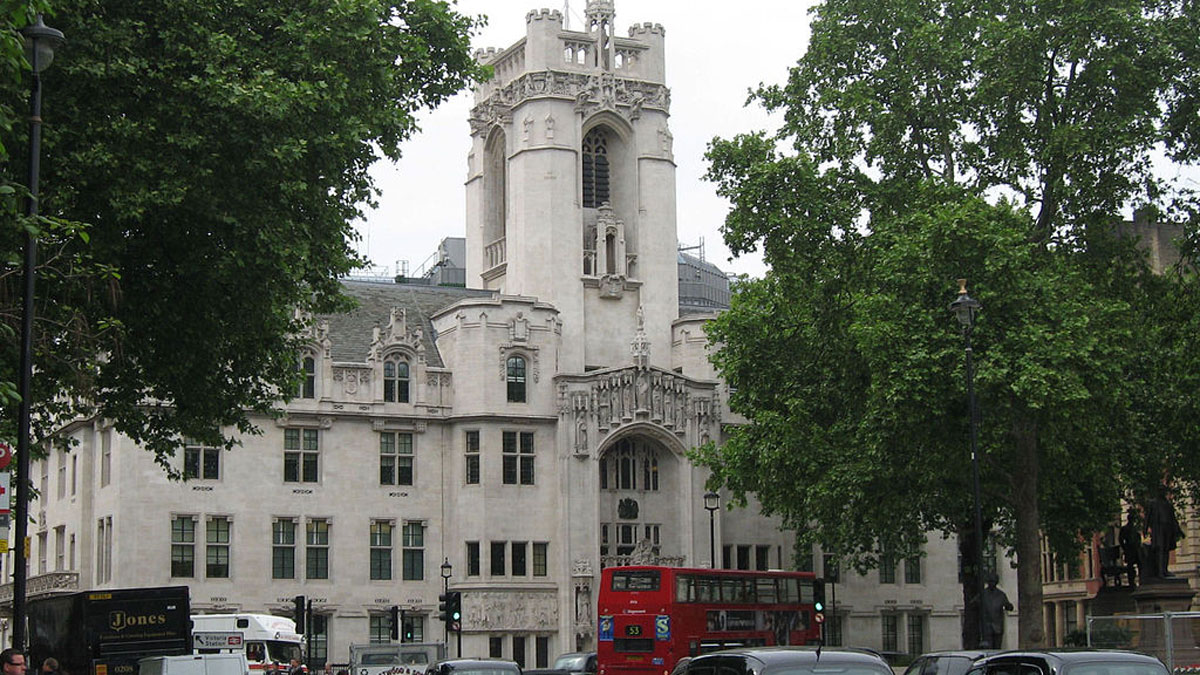Supreme Court: how the highest court in Britain works
Top judges will decide whether Holyrood can legislate for IndyRef2

A free daily email with the biggest news stories of the day – and the best features from TheWeek.com
You are now subscribed
Your newsletter sign-up was successful
The Supreme Court is holding a two-day hearing on whether Scotland can call a second independence referendum without the consent of the UK government.
Three prime ministers – Theresa May, Boris Johnson and Liz Truss – have refused to allow another independence referendum to go ahead after Scotland voted to remain in the UK in 2014. But the Scottish government now wants the highest court in the land to settle whether MSPs in Holyrood could legislate for a ballot on Scottish independence without Westminster authorisation.
What is the Supreme Court?
The Supreme Court is the UK’s highest court of appeal for civil cases and for criminal cases from England, Wales and Northern Ireland.
The Week
Escape your echo chamber. Get the facts behind the news, plus analysis from multiple perspectives.

Sign up for The Week's Free Newsletters
From our morning news briefing to a weekly Good News Newsletter, get the best of The Week delivered directly to your inbox.
From our morning news briefing to a weekly Good News Newsletter, get the best of The Week delivered directly to your inbox.
“It hears cases of the greatest public or constitutional importance affecting the whole population,” said the court’s official website.
Before the Supreme Court was established, in October 2009, “last resort” hearings were heard by 12 professional judges sitting in the House of Lords.
But while the court took over the judicial functions of the Lords, it cannot overturn primary legislation passed by Parliament.
This check to the court’s powers is down to the UK’s uncodified constitution, which runs on the principle of parliamentary sovereignty - meaning Parliament has absolute superiority over all other functions of government and judiciary, including the PM and the courts.
A free daily email with the biggest news stories of the day – and the best features from TheWeek.com
Landmark cases
The Supreme Court has heard hundreds of important cases since being established more than a decade ago.
In 2011, it heard the case of Al Rawi v. The Security Service, with former Guantanamo Bay detainees claiming that UK government agencies were complicit in their detention, rendition and mistreatment.
The judges ruled that the security services could not give secret evidence in the case, because dismissing the former prisoners’ claims on the basis of evidence that their legal teams hadn’t seen would undermine the constitutional principle of open justice and the right to a fair trial.
Another case that drew media attention took place in 2014, and centred around three men who wanted to be granted permission to undergo assisted suicide. The court had to decide whether the 1961 Suicide Act - which makes encouraging or aiding another person to commit suicide illegal - infringed on their right to decide when to die.
The Supreme Court judges ruled against the men, by seven to two, saying the question “centred on a moral judgement which should be addressed by Parliament”.
The court was also in the spotlight as a result of Brexit. In 2019, it ruled that Boris Johnson’s advice to the Queen that parliament should be prorogued for five weeks was unlawful. Opponents claimed the government was sending MPs away to stop them blocking the UK’s exit from the EU with or without a deal.
PoliticsHome called it “a stunning blow for the prime minister” after the 11 judges “unanimously agreed that his true motivation was to stop Parliament from carrying out ‘its constitutional functions’ by being able to hold the Government to account”.
How the referendum question will be decided
The crux of the matter revolves around proposed legislation in the Scottish Parliament called the Scottish Independence Referendum Bill, which would allow for a second independence referendum to take place. Scottish National Party (SNP) leader Nicola Sturgeon has said she plans to hold a referendum on 19 October next year.
As the BBC reported, five Supreme Court judges are being asked to decide whether the bill relates to “reserved matters”, meaning that responsibility over the issue would firmly reside with Westminster, rather than the devolved government of Holyrood.
If the court rules in the SNP’s favour, the prime minister will find herself facing the “real prospect of presiding over the break-up of the UK”, said The Guardian.
But if the court rules against, Sturgeon is expected to go ahead with plans to treat the next election as a proxy referendum. If “more than 50 per cent of the popular vote went to pro-independence parties” in the next elections, she would treat this as a mandate to begin Scotland’s separation from the UK, said The Times.
Supreme Court President Lord Reed said a judgment is likely to take “some months” as he and his four fellow judges look through 8,000 pages of legal arguments and supporting documents.
“It is no exaggeration to say that this may be the most important case to have ever come before the UK Supreme Court,” said The National, “as it goes to the very heart of the nature of the United Kingdom.”
-
 What to know before filing your own taxes for the first time
What to know before filing your own taxes for the first timethe explainer Tackle this financial milestone with confidence
-
 The biggest box office flops of the 21st century
The biggest box office flops of the 21st centuryin depth Unnecessary remakes and turgid, expensive CGI-fests highlight this list of these most notorious box-office losers
-
 The 10 most infamous abductions in modern history
The 10 most infamous abductions in modern historyin depth The taking of Savannah Guthrie’s mother, Nancy, is the latest in a long string of high-profile kidnappings
-
 How corrupt is the UK?
How corrupt is the UK?The Explainer Decline in standards ‘risks becoming a defining feature of our political culture’ as Britain falls to lowest ever score on global index
-
 Supreme Court upholds California gerrymander
Supreme Court upholds California gerrymanderSpeed Read The emergency docket order had no dissents from the court
-
 The high street: Britain’s next political battleground?
The high street: Britain’s next political battleground?In the Spotlight Mass closure of shops and influx of organised crime are fuelling voter anger, and offer an opening for Reform UK
-
 How robust is the rule of law in the US?
How robust is the rule of law in the US?TODAY’S BIG QUESTION John Roberts says the Constitution is ‘unshaken,’ but tensions loom at the Supreme Court
-
 Biggest political break-ups and make-ups of 2025
Biggest political break-ups and make-ups of 2025The Explainer From Trump and Musk to the UK and the EU, Christmas wouldn’t be Christmas without a round-up of the year’s relationship drama
-
 ‘The menu’s other highlights smack of the surreal’
‘The menu’s other highlights smack of the surreal’Instant Opinion Opinion, comment and editorials of the day
-
 Is a Reform-Tory pact becoming more likely?
Is a Reform-Tory pact becoming more likely?Today’s Big Question Nigel Farage’s party is ahead in the polls but still falls well short of a Commons majority, while Conservatives are still losing MPs to Reform
-
 The ‘Kavanaugh stop’
The ‘Kavanaugh stop’Feature Activists say a Supreme Court ruling has given federal agents a green light to racially profile Latinos